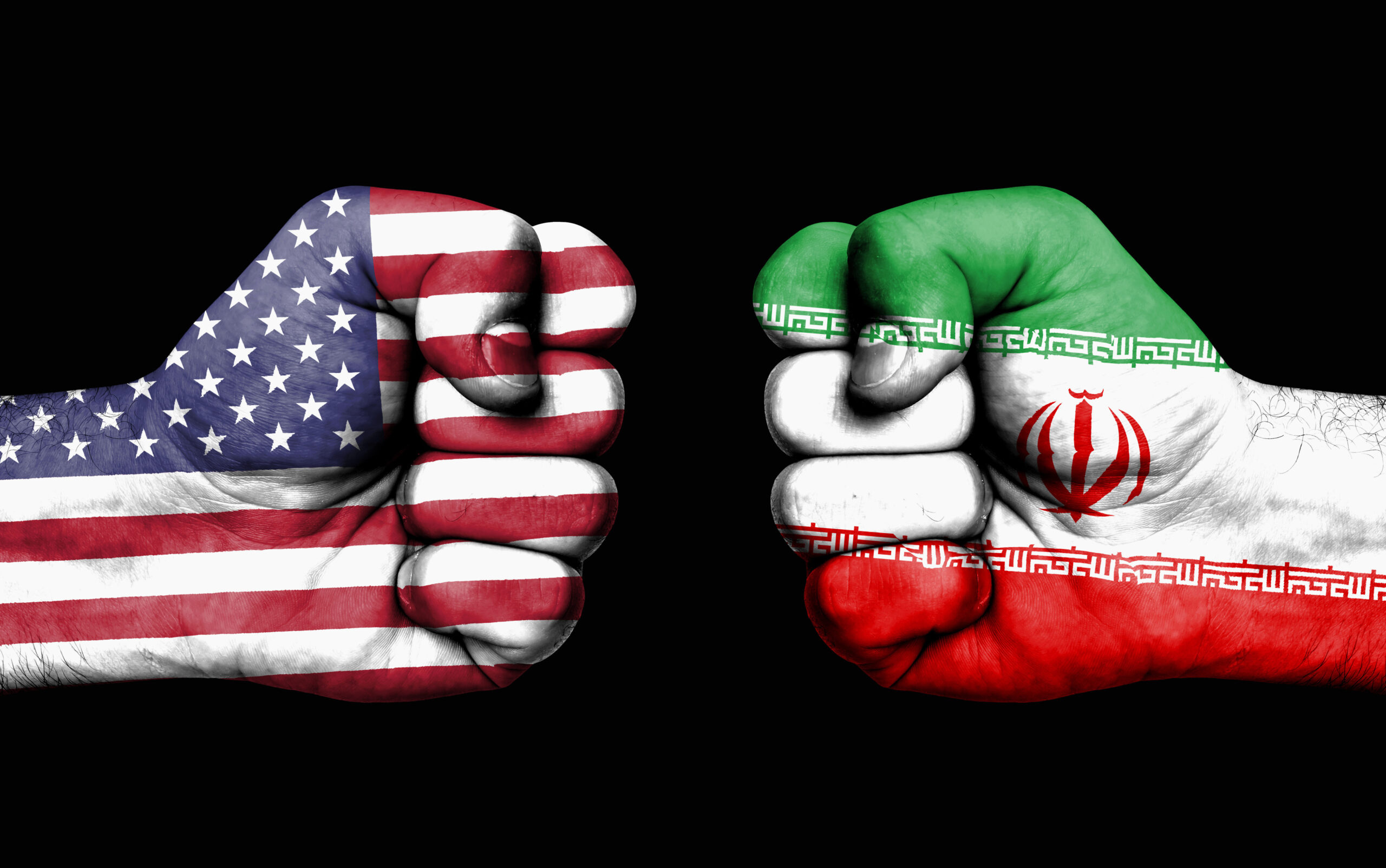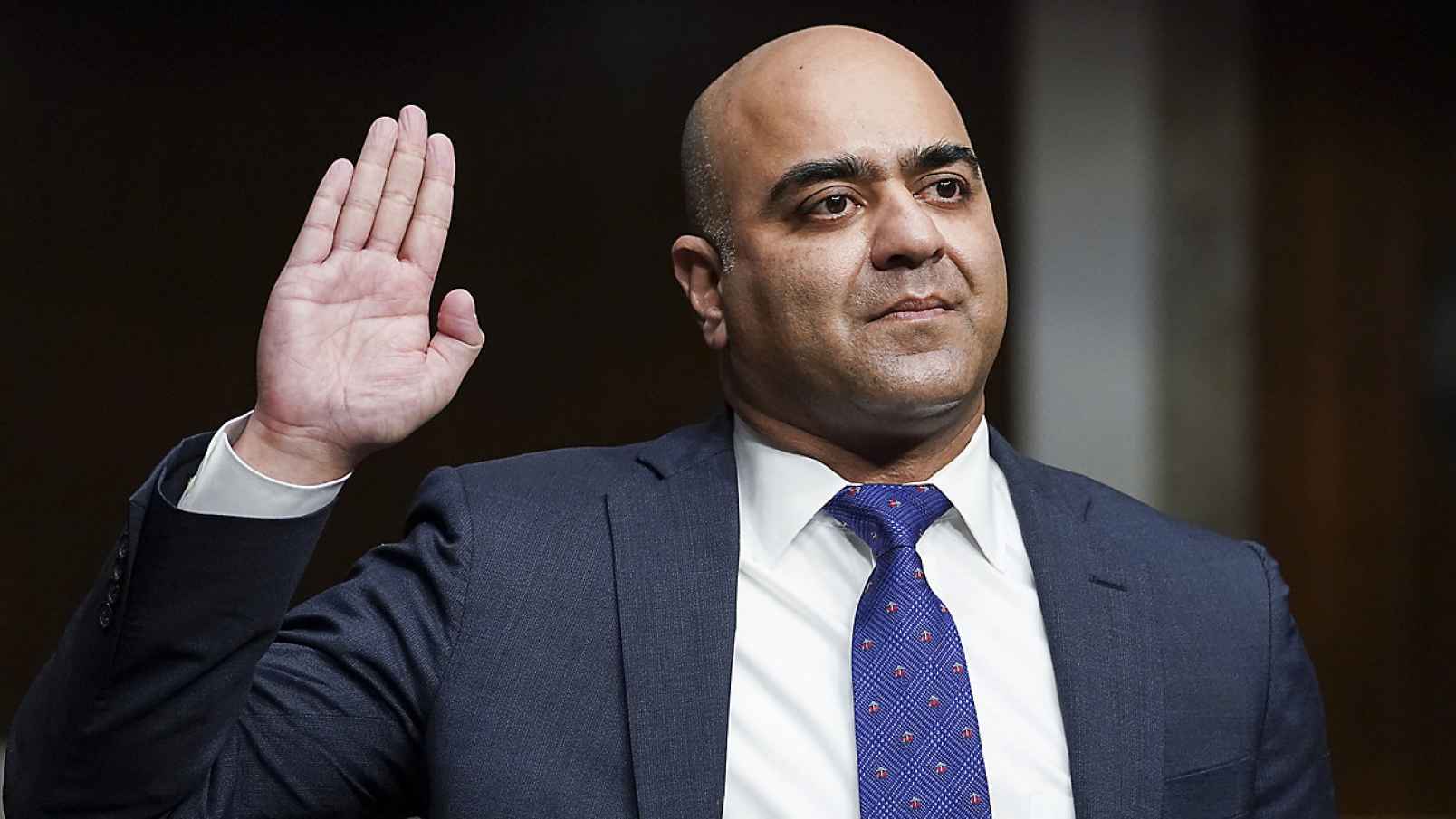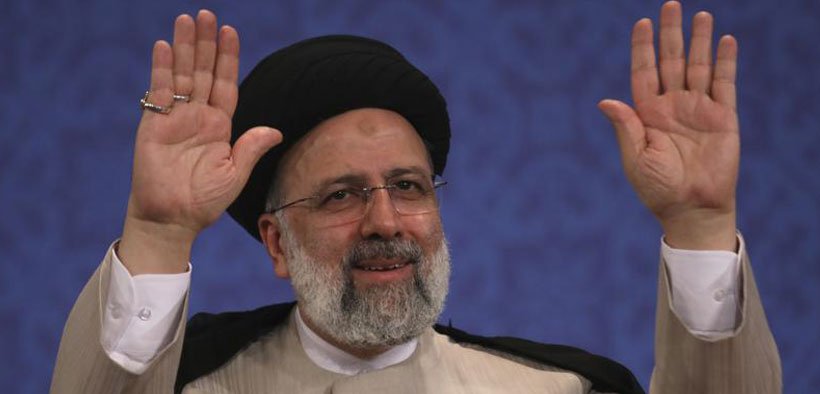Articles
Women’s Enslavement in Islamic Iran, vs. “Great Satan” America

[vc_row][vc_column][vc_column_text]
The Islamic Republic of Iran’s mullah kleptocrats call the United States government “The Great Satan” and have repeatedly chanted “Death to America.” But what should outrage American feminists in particular among Americans is the Islamic regime kleptocrats’ attitude toward women, including toward American women feminists.
Women in Iran were granted the right to vote in 1962 under the Shah Pahlavi dynasty, in a ruling comparable to one by which Switzerland granted rights to its women in 1971. This improvement in the legal rights of women in Iran came by way of the Shah’s White Revolution (also known as the Shah and People’s’ Revolution).
As part of that movement, a law enacted by Shah Mohammad Reza ended extrajudicial divorce and restricted polygamy. The law also raised the minimum age of marriage for girls from 13-15 up to 18. In response, the leading Islamic Shiite cleric, Ayatollah Khomeini, convened a meeting in the city of Qom to protest the Shah’s granting of such rights to Iran’s women. The Islamic objection was then sent to the Shah by telegraph.
But then, all Iranian women’s hopes for liberty vanished into thin air, when Ayatollah Khomeini took power of the Iranian state in 1979. Women still held on to the right to vote, but under the new Islamic regime they lost many of their other rights. Women became forced to live as second-class citizens in Iran, by the mullahs’ unequal and medieval Islamic rules, where men are legally entitled to have controlling status of “guardianship” over all of the big decisions of women’s lives.
And so today, Iran’s rate of women working in the labor force is a mere 16%, 49% lower than men, says the state-run media source, ISNA. The percentage rate of women in the Islamic Consultative Assembly (Parliament) is only 5%, while the world’s average is more than 25% female representation. One million and 800 thousand women in Iran are illiterate. The women’s illiteracy in some provinces reaches as high as 30%.
Before the Islamic takeover of Iran, the country experienced six decades of granting rights to women. But now, the women in Iran face harsh difficulties that earlier generations did not have to endure. Only about three million and 500 thousand women are among the 22 million people employed in Iran, according to the Iran Statistics Center reports in 2017. Most of the people who commit suicide are women. More than 10% of the students deprived of education are girls between 6 and 17 years old, ISNA declared on October 2014. At least 50% of girls in the marginalized areas across Iran are deprived of education, the deputy minister of education said in 2017.
Today in Iran, many official laws are enforced against women, such as:
- According to Iran’s Civil Code, girls need their father’s consent, if they want to marry. It means that there is no marriage choice for the girl if the father withholds his consent. Further, the father can force his 13-year-old daughter into any marriage he wishes.
- Women are not considered as the head of family in any social or legal sense. A mother’s young son can effectively be her “guardian.”
- According to the current laws in Iran, men can divorce their wives easily, at will. But women have extreme difficulty obtaining a divorce for almost any reason. And in the attempt, they must file a long list of evidence to prove that the man is not fitting to continue with her wedlock.
- Women have no rights to custody of their children. A mother can care for her children while those children remain living in her household, but the decision about whether to place the children in any other household apart from the mother rests with the male guardian. A mother cannot take guardianship of her children even in the case of death or absence of the father. In such a case, the rights of custody over her children will be given to the paternal grandfather, or uncle, or the next closest living male relative in the husband’s family.
- Women have the right to keep their children (while the children are under 7 years old) after divorce, but they will lose that custody if they remarry before the children reach age seven.
- Based on Iran’s Islamic law, men can have up to four permanent wives at the same time, and an unlimited number of “temporary” wives. In contrast, married women may only have one husband at a time. And a woman would be sentenced to the death penalty for adultery if she were ever caught, or even accused to be, in a partnership with another man.
- By the laws in Iran, children’s citizenship is under their Iranian father’s nationality, instead of the mother’s. So, Iranian women cannot get Iranian ID cards for their children if they marry foreigners.
- Women lose their rights to education after marriage, except by the consent of the husband. The husband has the right to ban his wife from taking any job if he wishes. The husband has the right to seek a court order on grounds of conjugal disobedience, if he does not want his wife working in a different city. He simply asks the court to end her employment, or he may demand court permission to marry another woman.
- No woman has the right to become president in Iran, according to the laws that dictate only men (Rejal) to chair the high-ranked official seats.
- Women’s “blood money” (compensation for a death—Diyyah in Persian and Arabic) is set at half of the men. In a car accident, the cost of blood money that women receive as compensation is half of the compensation for even a deceased male embryo, if a woman were pregnant.
- Women receive 50% less than their brothers from an inheritance, if their father or mother passes away. Based on this rule, if a husband passes away, the female heirs receive 50% less than their male siblings, or the husband’s father.
- Women’s testimony as witnesses at court is counted as half of the testimony by men. And, no women can become a judge in Iran under the regime’s Islamic laws. They can only rise high enough to play a role as advisor of a male judge, even if they have a law degree; or, they can work as an investigation judge, but without the rights to issue any verdict.
- Women have no rights to obtain a travel passport without their husband’s or father’s permission; and, their husband or father can confiscate the women’s passports, to prevent any females under their guardianship from traveling abroad.
So as the mullahs of Islamic Iran chant murderous disdain for America, while legally enslaving Iranian women as property under Islamic Law, how do American women fare, in contrast?
The 19th Amendment to the United States Constitution guarantees all American women the right to vote. It was passed by Congress nearly a century ago, on June 4, 1919, and was ratified on August 18, 1920.
Not only do women in America vote on an equal basis with men, but they increasingly get elected to all levels of political office in America. Over the past half century or so, Pew Research Center data proves that the rate of women in elective office has been rising in America at a remarkably steady pace across the political landscape, with no sign of slowing. In addition, the same trend shows women taking charge in cabinet level positions in presidential administrations across both parties, becoming Fortune 500 company CEOs, board members and other executives, and university presidents, to name a few areas of high-ranking inclusion.
Recent data compiled by the Inter-Parliamentary Union ranked 193 countries of the world by descending order of the percentage of women in the lower or single House. The United States came in at a respectable upper-middle rank of 76, with almost a quarter of each of its two bodies of Congress containing elected women as representatives.
But where does Islamic Iran fall on that chart? You can find it way down near the bottom at number 178 of 193 countries, in company with many of the other Islamic states that are the stuff of women’s nightmares. So the next time American feminists hear the mullahs’ chants of “Death to America,” they might want to ponder where that outcome would lead for American women. They should consider what will be the lost feminist rights and freedoms in the future lives of their daughters and granddaughters, if the Islamic Movement ever takes control here, as it so abruptly did in Iran four decades ago.
By Kaveh Taheri & Aynaz Anni Cyrus
Kaveh Taheri, co-founder and chairman of the ICBHR.Com, is a Turkey-based Iranian Human Rights researcher and journalist who has worked exclusively on Middle East. Kaveh, who was a former political prisoner in Shiraz, had been sent to prison for his writings and statements on his Websites and Weblogs, in Iran and fled the country through Turkey to save his life.
Aynaz Anni Cyrus, National Director of American Truth Project. Anni was sold for $50 as a child bride in Iran. Rebelling against a life of sex slavery, she escaped to America. Now an American citizen, she is a leading spokeswoman against the evils of Islam.
[/vc_column_text][/vc_column][/vc_row]
Articles
Have We Forgotten What Happened On 9/11?
Articles
Sharia in the U.S. Judicial System?

The U.S. Senate’s recent confirmation of Zahid Quraishi as America’s first Muslim federal judge to a lifetime position on the District Court of New Jersey raises some concerning questions.
First and foremost, there is the question of his faith. Does it matter if Zahid Quraishi is a Muslim? The Left would, of course, maintain that raising the Muslim identity of Quraishi is racist, bigoted and “Islamophobic.” But those who understand the reality of Sharia – and the fact that Islam is not a race — understand that this matter is more complicated than what might first meet the eye.
It may very well matter if Quraishi is not just a Muslim “by name” – or just a “secular Muslim” by birth heritage. Indeed, if, as an adult adherent to Islam, he devoutly recites the Shahada — “There is no god but Allah, and Muhammad is the Messenger of Allah” – then Quraishi’s Muslimness could matter very much. That’s because it could indicate whether or not Quraishi would ever uphold aspects of Sharia – Islamic law – in his legal rulings.
As a survivor of Sharia law, I can tell you: Sharia matters — and in the most horrendous and painful of ways.
It is vital to understand that in Islam, Allah’s Law is supreme for Muslims, above all other laws and legal systems. And that poses a problem for America when Islam resides on its territory, because Sharia is completely incompatible with the U.S. Constitution and the foundations of a free society.
Quraishi’s relationship to Islam, therefore, matters a great deal — seeing that his new position entails significant power and influence in America.
So let’s dig a little bit deeper on Quraishi.
The Hamas-linked Council on American-Islamic Relations (CAIR) surprisingly did not come out and cheer Quraishi’s appointment — as one might have expected them to do. Instead, the Muslim “civil rights” organization appeared to be quite furious about him. Zahra Billoo, head of CAIR’s San Francisco branch, issued a statement affirming that she “would much rather have a white Christian judge with progressive values… It’s not enough that he is Muslim. In fact, it’s insulting.”
It appears that the problem for Billoo and CAIR is that Quraishi is not a Muslim from an apparent “list” of “20 to 50 Muslims who have been in the fight” for “social justice.” One unnamed Muslim politician who complained to Slate magazine about Quraishi’s appointment echoed the same theme: “We don’t know what his stances are on civil rights because you can’t find one article or anything that he’s written publicly about the Muslim struggle in the last 20 years post-9/11.”
For those concerned about Quraishi’s potential ties to Sharia, this negative disposition from the “Sharia camp” toward the Muslim judge might appear to be good news. But is it?
CAIR’s concern about Quraishi’s supposed lack of support for “progressive values” appears to be a good sign in light of CAIR’s own record of opposing counterterror measures and slandering opponents of jihad and Sharia tyranny. However, CAIR’s disposition toward Quraishi tells us little, if anything, about the key issue at stake: does the judge hold Islamic values or not?
The narrative takes another peculiar twist when we examine what transpired during Quraishi’s questioning before the Senate Judiciary Committee: When asked by Committee Chair, Democrat Senator Dick Durbin: “What do you know about Sharia law?” Quraishi answered that he knew “nothing about Sharia.“
Really?
Quraishi knows “nothing” about Islam or Islamic Law?
Christine Douglass-Williams has commented on Quraishi’s dubious answer:
“Virtually everyone knows something about the Sharia. In his position, Quraishi is likely to know a lot, and was probably fibbing, and not in an intelligent way, either. It isn’t possible that a man of his standing, who ‘has served as a military prosecutor and Army captain in Iraq, as an assistant U.S. Attorney who has tried cases of public corruption, organized crime and financial fraud, and as a white-collar criminal defense lawyer’, would know ‘NOTHING’ about Sharia.”
True indeed.
What makes the matter even more peculiar is that when one pulls up Quraishi’s questionnaire answers for the Senate Judiciary Committee, one finds that he is mentioned as a “Muslim” many times in his “Honors and Awards” list. So Quraishi is praised, rewarded and held in acclaim by the Muslim community for his achievements in light of his Muslimness, but he personally doesn’t know anything about Islamic law at all?
Could it be that Quraishi might actually not be the incidental Muslim he postures as being? Could it be that he has been recognized and awarded by important prominent Muslim organizations because they gauged that, among other things, he actually is somewhat of an adherent Muslim after all?
Is it possible that CAIR might really not be as upset as it is claiming to be about Quraishi’s appointment? Or maybe it is upset, but not for the reasons it has given? Could it also be that certain players involved in this narrative are engaging in some form of taqiyya – the command in Islam for Muslims to deceive non-Muslims?
Would it also be out of bounds to ask: even if Quraishi is not an adherent Muslim, is it legitimate to be concerned that he one day could become one?
It is vital to stress at this point that Islam is not just a “religion” the way that Christianity and Judaism are religions. Islam is much more than a “faith.” For example, like Judaism, Islam has a legal system — but Islamic Law extends far beyond any Judaic (or even secular) legal system. Sharia embodies all the commands of Allah and all the examples of Muhammad-as divine law that must be implemented in all areas of life.
Qur’an 33:21 is just one verse of many that confirms that Muhammad is “an excellent pattern” for Muslims to follow. It would do well for people to keep in mind that the “excellent” examples that Mohammed set for his followers included the following: marrying a six-year-old girl, A’ishah, and having sex with her when she was nine (Sahih al-Bukhari 5134); encouraging rape of female captives (Qur’an 4:24); stating that women are stupid (Qur’an 2:282) and that hell is comprised of mostly women (Bukhari 29); commanding men to beat their wives (Qur’an 4:34); and being merciless to a woman who had been beaten so brutally that her bruise was green (Bukhari 5825).
Muhammad also disparaged black people (Bukhari 7038). He murdered between 600 and 900 Jews in one battle, and then distributed the captive women as sex slaves (Ibn Ishaq, pp. 464, 511-512).
With some of these matters in mind, the question surfaces: would or could an American Muslim federal judge consider such material as a basis for his rulings? According to Islamic law, a Muslim judge must do so. Sharia mandates that no true Muslim is obligated to obey the laws of a non-Muslim country. Qur’an 33:1 commands to “not obey the disbelievers and the hypocrites.” Qur’an 4:60 says that those who “refer legislation” to the non-Muslims are led “far astray.” And Qur’an 9:3 says that “Allah is disassociated from the disbelievers, and [so is] His Messenger.” According to Islamic tradition, the revelation of that last verse allowed Muhammad to break the Treaty of al-Hudaibiyah.
Let us be clear: an American judge who follows Muhammad’s example can take an oath to uphold the U.S. Constitution, and not really mean it. In fact, Muhammad instructs such a judge exactly what to do in this situation: “if I take an oath and later find something else better than that, then I do what is better and expiate my oath.” (Bukhari 5518)
The supremacy of Islamic Law over all other laws still applies today. The Islamic website International Shariah Movement is run by certified Islamic scholars. Its post “Obey the Law of the Land?” cites Qur’an 33:1.
Under Sharia, if a woman is raped, a Muslim judge must disregard any forensic or non-witness evidence, because Qur’an 24:13 requires “four male witnesses” for a rape conviction.
A beaten woman may also easily be denied divorce, because Qur’an 4:34 commands that “Men are in charge of women,” and so may “strike them.”
That is exactly what a Muslim judge in an Iranian Islamic court told me personally when I was a 15-year-old child bride, desperate for a divorce to escape the beatings. In fact, a beaten woman who leaves Islam must be hunted down and murdered, according to Islamic law, because Muhammad said, “Whoever changed his Islamic religion, then kill him.” (Bukhari 6922)
With all these realities in mind, it is clear that if we cannot at least ask Judge Zahid Quraishi some questions regarding his adherence, or non-adherence, to Islamic law, or even understand that the issue of Quraishi’s Muslimness is an important one to address, then America is in deep trouble.
As an individual who suffered under Sharia, and was able to escape its monstrous clutches, I strongly encourage my fellow Americans to ask the right questions in this vital – and troubling – narrative about America’s new federal judge.
Articles
Iran Elects Mass Murderer as Next President

The ‘election’ for president is over in Iran. The grand ayatollah handpicked Ebrahim Raisi who was then ‘elected’. He’s not just a hardline jihadist, but he’s a mass murderer and a big-time one. And more importantly, he’s very proud of his background.
He’s accused by the world of having personally supervised the trials and executions of somewhere between 5,000 and 40,000 Iranians in the 1980s. He has personally been sanctioned by most of the world, including the United States, who cannot even legally talk to him.
Meanwhile, Raisi calls himself a defender of human rights when asked about the mass executions. The guy is a world-class war criminal. He ran the death panel that sentenced and executed tens of thousands of political prisoners at the end of the 1980s. He is now the leader of the world’s most notorious state sponsor of terrorism.
The first thing we have to know about Ebrahim Raisi is that these charges of mass murder as far as the Iranian mullahs are concerned, are not a problem but rather they are a bonus. It’s not that they picked him in spite of his terrible record. They picked him because of his terrible record.
Domestically, the ayatollah is sending a message to the Iranian people who remain discontented in large part with the Islamic regime. The message is simply put, “ you are not going to be able to dissent. There will be no ability to protest. Anybody who expresses any kind of public disagreement, it’s very clear what kind of treatment they’re going to get with Ebrahim Raisi as the President of Iran.”
Keep in mind, Raisi was not elected. He was selected. He was selected by the supreme leader of Iran, who is the real power in the country, and he is going to execute the policies of the supreme leader. The supreme leader’s disposition toward his own people and toward the world is revealed by the person he selects to be the President of Iran.
By picking Raisi, Ayatollah Khamenei is not only showing that he’s going to crack down harshly on dissent within Iran, but he’s showing that he understands that with Biden’s handlers running the United States, that the United States is weak, is not going to stand up to him and this is his time to step up Iran’s support for terrorism worldwide, supporting Hamas, supporting Hezbollah, supporting Palestinian Islamic Jihad.
The Iranian regime has also in the past supported al-Qaida and the Taliban, and other jihadi groups as well as and this is much less known. It’s clear that Iran understands that leftism is corrosive to Western civilization, and they want to destroy Western civilization. Therefore Iran will support both the leftists and the Islamists around the world who are anti-America and anti-Israel.
From now on, we can expect to see increased belligerence on the part of Iran. And Raisi’s ascension to the presidency means that Iran is going to be strutting around and sponsoring terrorism around the world and cracking down on its own people within the country.
By Barry Nussbaum, Son of Auschwitz survivors, Founder American Truth Project, Foreign and Domestic Policy Commentator









